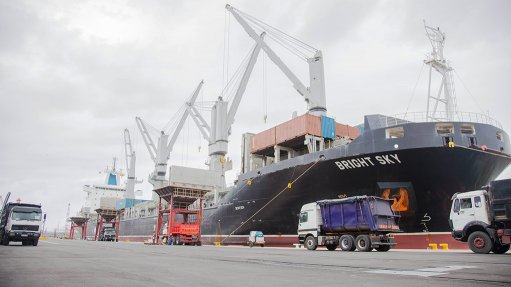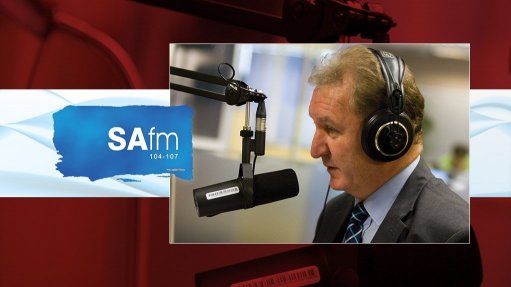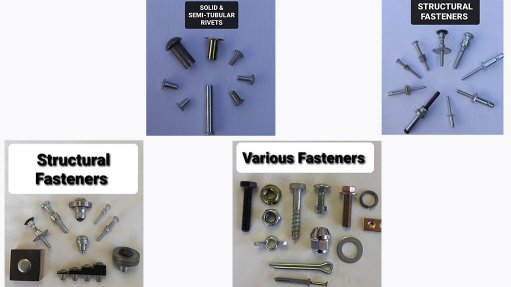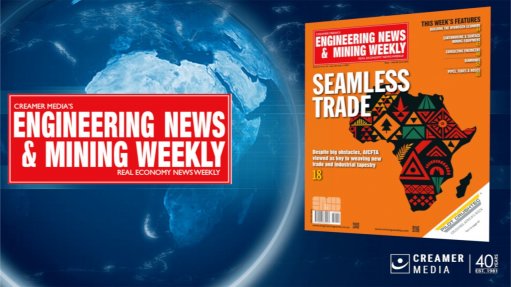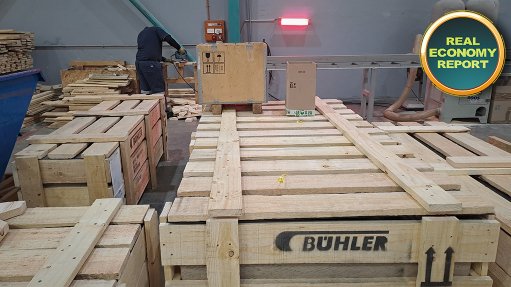The Rhisotope Project at Wits is entering a new testing phase with the insertion of radioisotopes into 20 live rhinoceros
This article has been supplied as a media statement and is not written by Creamer Media. It may be available only for a limited time on this website.
After three years of meticulous and dedicated hard work, the Rhisotope Project at Wits University has successfully inserted low doses of radioisotopes into 20 live rhinoceros.
In this final phase of the research project, Professor James Larkin from the University of the Witwatersrand’s Radiation and Health Physics Unit (RHPU) in collaboration with a team of experts who are leaders in the world of rhino conservation and veterinary work, will closely monitor the health and vital statistics of the rhinos over a period of six months, in order to determine the viability of this approach.
The Rhisotope Project’s intention is to use nuclear technology in the form of small, measured quantities of radioisotopes and to insert these into the horns of rhinoceros, which can be picked up by radiation detection portal monitors at international borders, including at harbours, airports and land-crossings. These radioisotopes will provide an affordable, safe and easily applicable method to create long-lasting and detectable horn markers that cause no harm to the animals and environment. At a later stage, the work will expand to elephants, pangolins and other fauna and flora.
Being pioneered in the UNESCO Waterberg Biosphere Reserve, the Project aims to benefit from existing, sophisticated multi-billion-dollar nuclear security infrastructure that already exists throughout the world. Over 11 000 radiation detection portal monitors are installed at airports, harbours and other ports of entry, including thousands of trained personnel equipped with radiation detectors, all of which can detect the smallest radioactive particles. In contrast to this, the infrastructure and number of trained officials to detect wildlife trafficking at ports of entry internationally is extremely limited.
“Every 20 hours in South Africa a rhino dies for its horn. These poached horns are then trafficked across the world and used for traditional medicines, or as status symbols. This has led to their horns currently being the most valuable false commodity in the black-market trade, with a higher value even than gold, platinum, diamonds and cocaine. Sadly, rhino horns play a large role in funding a wide variety of criminal activities globally,” says Professor James Larkin. “Ultimately, the aim is to try to devalue rhinoceros horn in the eyes of the end users, while at the same time making the horns easier to detect as they are being smuggled across borders.”
Starting on Monday, 24 June 2004, Professor Larkin and his team carefully sedated the 20 rhinos and drilled a small hole into each of their horns to insert the non-toxic radioisotopes. The rhinos were then released under the care of a highly qualified crew that will monitor the animals on a 24-hour basis for the next six months. “Each insertion was closely monitored by expert veterinarians and extreme care was taken to prevent any harm to the animals,” says Larkin. “Over months of research and testing we have also ensured that the inserted radioisotopes hold no health or any other risk for the animals or those who care for them.”
The development and application of the Rhisotope Project nuclear technology has the capacity to help deter poaching, increase the detection capabilities of smuggled horns, increase prosecution success, reveal smuggling routes and deter end-user markets.
Rhino poaching reached crisis levels since 2008 where close to 10 000 rhinos were lost to poaching in South Africa, with wildlife trafficking being the third biggest organised crime globally.
Professor Lynn Morris, the Deputy Vice-Chancellor: Research and Innovation at Wits University says: “This is an example of how cross-disciplinary research and innovation makes a real difference. This novel approach pioneered by Prof Larkin and his colleagues has the potential to eradicate the threat of extinction our unique wild-life species , especially in South Africa and on the continent. This is one of many projects at Wits that demonstrates research with impact, and which helps to address some of the local and global challenges of the 21st Century.”
The Rhisotope Project at Wits was set up by a small team of likeminded individuals as a South African-based conservation initiative in January 2021 with the intention of becoming a global leader in harnessing nuclear technology to protect threatened and endangered species of fauna and flora as well as communities of people.
Aside from developing a solution to combat the illicit trade and trafficking of wildlife products, the Rhisotope Project seeks to provide education and social upliftment to empower people and local communities. A special focus is aimed at uplifting the girls and women of rural communities, who are often the backbone of these communities in the remote areas where endangered species are found and are the greatest components of success in changing the hearts and minds of local communities thereby creating rhino ambassadors and champions.
Comments
Press Office
Announcements
What's On
Subscribe to improve your user experience...
Option 1 (equivalent of R125 a month):
Receive a weekly copy of Creamer Media's Engineering News & Mining Weekly magazine
(print copy for those in South Africa and e-magazine for those outside of South Africa)
Receive daily email newsletters
Access to full search results
Access archive of magazine back copies
Access to Projects in Progress
Access to ONE Research Report of your choice in PDF format
Option 2 (equivalent of R375 a month):
All benefits from Option 1
PLUS
Access to Creamer Media's Research Channel Africa for ALL Research Reports, in PDF format, on various industrial and mining sectors
including Electricity; Water; Energy Transition; Hydrogen; Roads, Rail and Ports; Coal; Gold; Platinum; Battery Metals; etc.
Already a subscriber?
Forgotten your password?
Receive weekly copy of Creamer Media's Engineering News & Mining Weekly magazine (print copy for those in South Africa and e-magazine for those outside of South Africa)
➕
Recieve daily email newsletters
➕
Access to full search results
➕
Access archive of magazine back copies
➕
Access to Projects in Progress
➕
Access to ONE Research Report of your choice in PDF format
RESEARCH CHANNEL AFRICA
R4500 (equivalent of R375 a month)
SUBSCRIBEAll benefits from Option 1
➕
Access to Creamer Media's Research Channel Africa for ALL Research Reports on various industrial and mining sectors, in PDF format, including on:
Electricity
➕
Water
➕
Energy Transition
➕
Hydrogen
➕
Roads, Rail and Ports
➕
Coal
➕
Gold
➕
Platinum
➕
Battery Metals
➕
etc.
Receive all benefits from Option 1 or Option 2 delivered to numerous people at your company
➕
Multiple User names and Passwords for simultaneous log-ins
➕
Intranet integration access to all in your organisation







